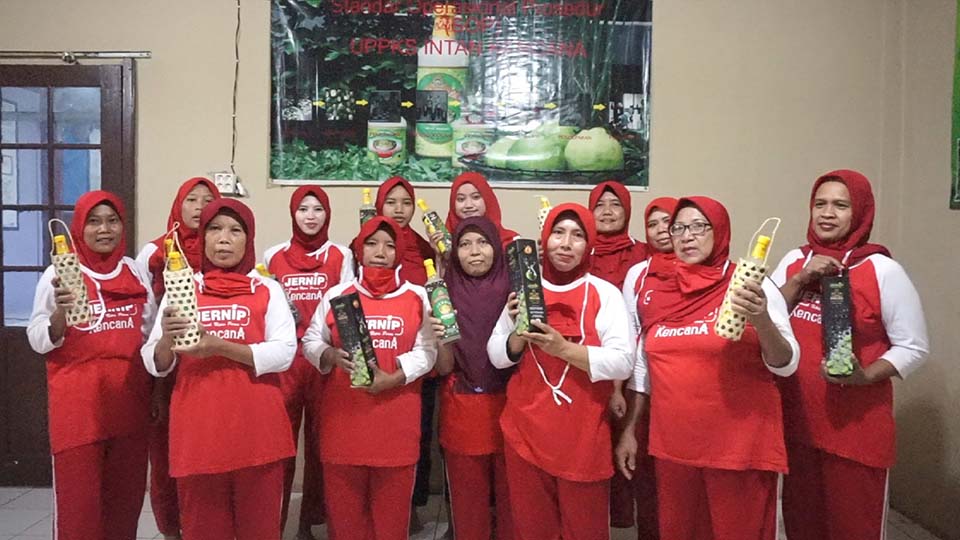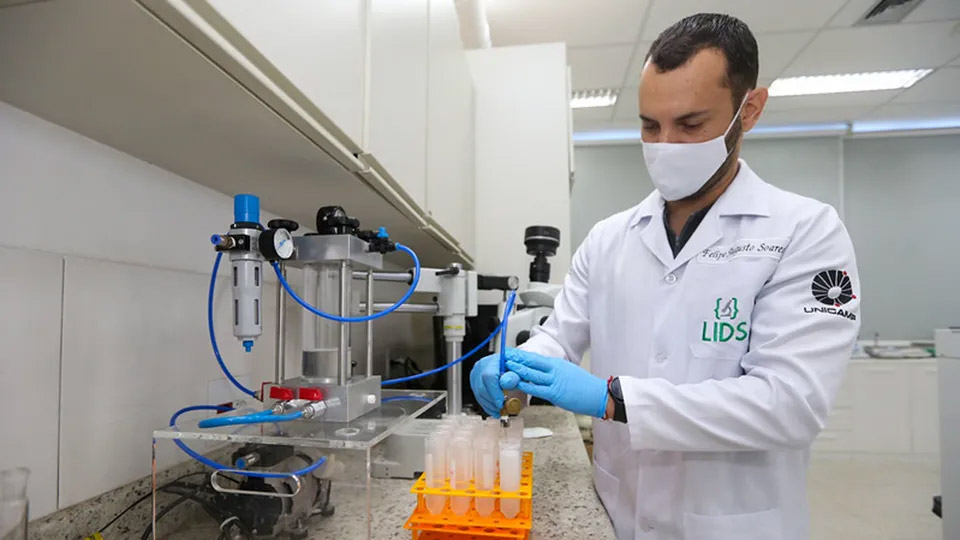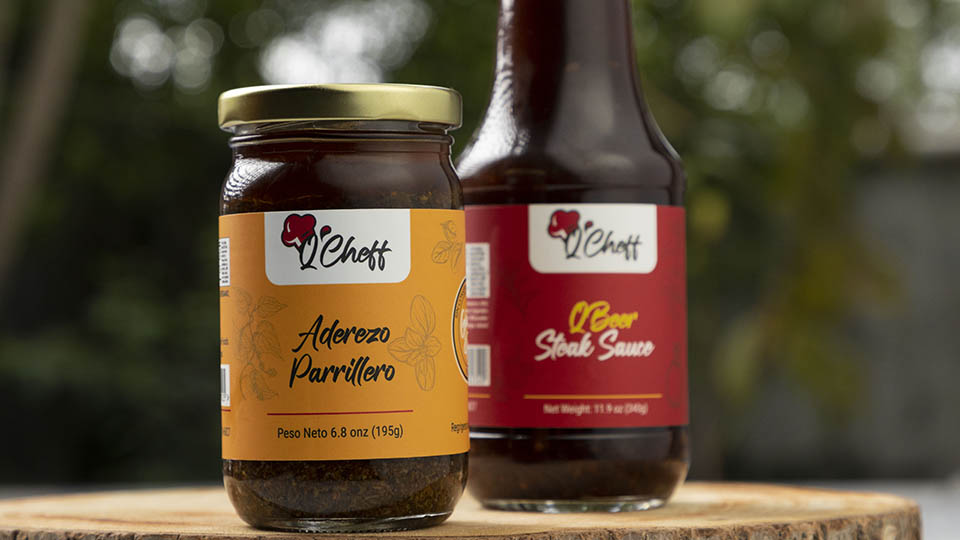Global meat production has more than tripled over the past 50 years. However, as demand continues to rise, there are growing concerns about the meat industry’s multiple environmental impacts, from greenhouse gas emissions to freshwater depletion. In response, the past decade has witnessed a boom in meat alternatives, and there is fierce competition to produce plant-based meats that look and taste like the real thing. DAIZ Inc., a Japanese startup established in 2017, is pioneering an innovative new approach to plant-based meat using a time-honored ingredient: soybeans.
Harnessing the power of soybeans
The Japanese have traditionally sourced much of their protein from soybeans, and the food contributes greatly to the Japanese food industry as a raw material for tofu, soymilk, natto, soy sauce, miso, oil and emulsifiers. In addition to its high protein content – which includes all nine essential amino acids – soybeans are packed with nutrients, such as potassium, magnesium, B vitamins and fiber.
Owing to their high nutritional value, soybeans are a key ingredient in many plant-based meats. However, most companies use dried soybeans or the soybean pulp, a by-product of oil production, to make their meat alternatives. These forms of soybean have relatively low concentrations of vitamins, minerals and amino acids. Not only does this limit their nutritional value, but it makes it more difficult for producers to capture that authentic meaty taste, as amino acids are largely responsible for meat’s distinctive umami flavor.
To maximize the flavor and nutritional value of the soybeans in their plant-based meats, DAIZ eschews dried soybeans and pulp in favor of germinated soybeans. Germination is the process by which dormant seeds burst into life and sprout. It is fueled by the seed’s store of starch and proteins, which newly awakened enzymes rapidly break down into sugars and amino acids. In soybeans, exposure to oxygen, carbon dioxide, rising temperatures and water during germination activates further metabolic processes not found in normal seed germination, resulting in increased enzyme activity and amino acid production.
The Ochiai Germination Method
DAIZ’s breakthrough has been to harness these natural processes to fine-tune the nutritional content of soybeans used in their plant-based meat.

This accomplishment has been spearheaded by DAIZ’s Director and Chief Technology Officer, Professor Koji Ochiai, a biochemist who has been studying the secrets of germination for over 30 years. The blending of traditional food and cutting-edge technology is reflected in the company’s name, which is inspired by the Japanese words for ‘soybean’ and ‘artificial intelligence’.
The process, known as the Ochiai Germination Method, begins with whole soybeans. DAIZ only uses the ‘HO Saga’ breed of soybean, which was recently developed at Japan’s Saga University for its high oleic acid levels. Oleic acid may help lower cholesterol and help prevent cardiovascular diseases. It also does not produce the distinctive smell and taste that can put Western consumers off soybean products.
At the company’s processing facility, in the southern city of Kumamoto, these specially selected soybeans are loaded into tanks where the temperature and amount of oxygen, carbon dioxide and water are carefully adjusted using patented technology. The environmental conditions trigger the soybeans to germinate. As this happens, the temperature in the tanks rises sharply, oxygen is rapidly consumed and the amount of carbon dioxide increases. These changes ‘stress’ the germinating soybeans, maximizing enzyme activity and increasing their nutritional content. After about 13 hours, levels of glutamic acid in the soybeans have increased tenfold, arginine levels have doubled, isoflavones have increased by 4.3 times and gamma-aminobutyric acid by 3.5 times.
The strength of the Ochiai Germination Method is that it uses natural germination process to increase the amino acid composition of soybeans. This makes it possible to change the taste and nutritional value of soybeans to closely match that of pork, chicken, fish and beef, without the damaging environmental consequences of meat production. On the basis of these qualities, DAIZ has named its plant-based meat ‘MIRACLE MEAT’ , which is registered as a trademark.

Expanding into drug discovery
The same Ochiai Germination Method that produces DAIZ’s MIRACLE MEAT has also enabled the company to expand into drug discovery. The company is currently investigating daidzein, a type of isoflavone that rapidly increases in germinating soybeans that have been subjected to a stress stimulus. In a pre-test at the Japanese Foundation for Cancer Research, the growth of extracted breast cancer cells was suppressed with the addition of an extracted secondary metabolite of daidzein called glyceollin.
Scientists at DAIZ have also been able to artificially induce abnormal metabolism and immune responses in soybeans and other seeds that have undergone the Ochiai Germination Method by exposing them to a type of metabolite known as an elicitor. This triggers the soybeans to produce antimicrobial compounds known as phytoalexins. In nature, phytoalexins play a key role in the immune response of plants against pathogen infection. They have attracted interest for their medical potential, but are difficult to collect using conventional technology, which has hindered applied research for drug discovery. DAIZ’s breakthrough marks the world's first method for making plants produce a wide variety of phytoalexins in large quantities – something which could prove a game changer for drug discovery.
On the basis of this discovery, DAIZ is currently conducting joint research with Kyoto University, the Japanese Foundation for Cancer Research and an artificial intelligence startup from the Massachusetts Institute of Technology to comprehensively search for new phytoalexins, determine their 3D structure and use artificial intelligence to study their possible effects. More than 30,000 new phytoalexins have been discovered so far, and DAIZ hopes that it will soon use soybeans and other seeds to produce novel drugs.
DAIZ’s capital raising and intellectual property strategy
Most startups find it difficult to record profits because of significant research and development costs. However, DAIZ has managed to buck this trend and achieve significant funding thanks to its advanced technology and steady acquisition of rights to that technology. By April 2022, DAIZ had raised more than JPY 6 billion (GBP 37,000) in capital to allocate to research and development funds and investment funds for manufacturing equipment. On the back of this success, it plans to raise additional capital in 2022.

At the heart of DAIZ’s intellectual property (IP) strategy are its two patents. The first, patent no. 5722518, was filed in 2007 and is a basic patent relating to the Ochiai Germination Method: ‘Method for producing germination differentiated plant seed, food containing easily water-soluble polyphenol and/or antioxidation substance of germination differentiated plan seed, and apparatus for germination differentiation of plant seed.’
The second, patent no. 5795676, was filed in 2014 and is an invention relating to: ‘Germination treatment plant seed manufacturing method, germination guiding seed manufacturing method, germination treatment plant seed extract composition, and screening method.’ This applied patent expands the scope of the first patent from equipment to manufacturing methods, extraction compositions and screening methods.
DAIZ is also working to protect its drug discovery work. In 2019, it applied for a patent on glyceollin as a drug discovery business. Moreover, the molecular structure of the phytoalexins created in plants meets the conditions required for small molecule drug discovery research, and there is a possibility that drug discovery seed compounds can be created.

In addition to patents, DAIZ has accumulated a vast amount of data from its seed research which it retains as trade secrets. This IP enables DAIZ to fine-tune its processes to produce plant-based meat that meets the diverse needs of customers. For DAIZ’s drug discovery business, the company plans to explore the pharmaceutical potential of plants by screening synthetic substances for stressing soybeans and other seeds. The collected trade secrets that will be produced by this work may aid future drug discovery.
A strategy inspired by the Sustainable Development Goals
With the global population set to exceed 10 billion by 2050, the world faces a protein crisis: existing food systems simply cannot supply a population that big with enough protein. This risks exacerbating hunger and malnourishment for millions of people. By significantly improving the nutritional value and taste of soybeans, the Ochiai Germination Method and DAIZ’s MIRACLE MEAT offer a fresh alternative to traditional meat production. In this way, the company aims to make a significant contribution to the United Nations’ Sustainable Development Goal (SDG) 2, which calls for improved food nutrition and security and an end to world hunger.
DAIZ is also guided by SDGs 13 and 15, which address climate change and life on land, and the company is actively pursuing new products to replace traditional, environmentally damaging sources of protein. These include egg and milk alternatives as well as an inexpensive and highly absorbable ‘amino acid-rich grain flour’, which can serve as a replacement for conventional vegetable-based plant protein powder. In response to SDG 14, which draws attention to the challenges faced by marine life, DAIZ is also promoting its plant-based meat as a protein-rich feed for aquaculture.

The company’s pharmaceutical research, meanwhile, directly addresses SDG 3, which sets ambitious global targets to improve health and wellbeing. With high-throughput screening of synthetic compound libraries producing limited results, DAIZ’s focus on the incredible variety of natural compounds produced by plants has the potential to reinvigorate the vital field of drug discovery. Taken together, DAIZ’s innovative work in food and medicine is helping the company achieve its goal of improving the health of people and the planet.



